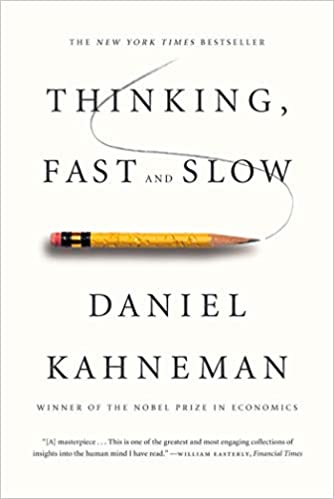Which is the better way to go? With your gut or where the data leads you?
A study found that there is a dramatic difference between the way analytical entrepreneurs approach business and those who go with their “gut” or intuition. The results found this preference affects the entrepreneurs’ perception of their self–efficacy.
Those who relied more on their intuition stood out for their confidence in their abilities to recognize opportunities. However, they lacked confidence in their ability to assess, plan, and evaluate.
On the opposite end of the business spectrum, those whose style was more analytical exhibited more confidence in their abilities to assess, plan, and evaluate. But they also lacked confidence in their abilities to identify new opportunities.
It seems that entrepreneurs are at a crossroads, then. Which is more important?
Canadian psychologist Gordon Pennycook looked at this problem and presented his findings. Everyone, technically, is an intuitive thinker. He brought up daily life as an example since we encounter decisions and problems throughout our day, we usually use our emotions to make these decisions.

Thinking Fast and Slow
by Daniel Kahneman
⏱ 14 minutes reading time
🎧 Audio version available
However, here, it’s a good thing. We have millions of years of history that have honed the efficiency of our intuition.
Albert Einstein, one of the most brilliant critical thinkers of all time, once said,
“The intellect has little to do on the road to discovery. There comes a leap in consciousness, call it intuition or what you will, and the solution comes to you, and you don’t know how or why?”
Then you have minds, such as Marie Curie and Henry Ford, for example, whose analytical thinking shaped the modern world as we know it. They thought rationally, gathered the data they needed, and made logical connections between their ideas.
Analytical thinking is defined as: being able to identify and define problems; being able to extract information from data; verifying the cause of the problem. And finally, developing a solution to solve said problem.
But it’s more than just breaking down data into basic principles or breaking down information into parts. It’s how you approach coming to the best and most efficient conclusion. People who engage in analytical thinking are characterized as independent self-learners. Studies show they make fantastic leaders, they’re masters of self-improvement, and they are always working on upgrading their knowledge.
When you look at people in STEM fields– science, technology, engineering, and math– you’ll find that they lean towards analytical thinking. When they encounter a problem, they seek data and reliable information to guide them. They evaluate every potential result and payoff– for themselves and for others.
Now, just because they have years of training in an analytical thinking style doesn’t mean intuition doesn’t play a part. It often leads them where they need to be or it can lead them astray. So analytical thinkers do use intuitive thinking.
On the other hand, intuitive thinkers, under the right circumstances, can think analytically.
Entrepreneurs need intuition. Intuition is one of the most powerful tools entrepreneurs have at their disposal.
That gut feeling, that inner voice– or, if you would like, that “sixth sense,” is what guides you through risks. When you’re making a business decision, data may not be available to make a sound decision. That’s where intuition comes into play. Studies have shown that a surprising number of entrepreneurs were able to build million-dollar businesses. One of the things they credit their success to? Their inner voice.
Believe it or not, but there is a science behind intuition– despite intuition being defined as “the power or faculty of attaining to direct knowledge or cognition without evident rational thought and inference.”
The Psychological Science journal conducted a study where they looked for a way to add science to intuition and to find a way to measure it. The study ended up proving that intuition is something you get better at over time. They also found that people who use their intuition are able to make faster and more confident decisions.
Who else believes in the prowess of intuitive thinking? Barbara Corcoran, who was the first female shark on the show “Shark Tank.” She says,
“Don’t you dare underestimate the power of your own instinct. Many entrepreneurs who ignore their instinct regret it later.”
When venture capitalist Anthony K. Tjan was writing his book, “Hearts, Smarts, Guts, and Luck,” he looked into and interviewed literally hundreds of successful entrepreneurs. His findings? When they started out, over 70% of them didn’t have a detailed business plan!
Renowned entrepreneurs and leaders such as Apple’s Steve Jobs are among those who credit their success to their intuition. In a speech to Stanford in 2005, he famously said,
“You have to trust in something. Your gut, destiny, life, karma, whatever. This approach has never let me down, and it has made all the difference in my life.”
Let that sink in. Aren’t entrepreneurs supposed to rely on data and research?
It comes down to this: isn’t one of the definitions of being an entrepreneur being a “visionary?” Well, those entrepreneurs didn’t have a detailed business plan. But they did have a detailed vision. After that, they started being more analytical, implementing that vision step by step.
You may be wondering how a gut feeling could be more important than concrete facts? Following that gut instinct is the only way to stay true to the vision that got you started.
You’ll understand the importance of intuition when you struggle with on the spot decisions that don’t have “comprehensive data.”
These decisions include instances such as being sure whether or not you’ve picked the right business partner, for instance. How can you be sure you’re hiring employees who are the best fit for your startup and vision? Should you fire that person? Should you take that risk?
These questions can be difficult to answer if you don’t have a well honed intuition.
You’ll find that some of the most important business decisions– the ones that can make or break your startup- are based on risk taking. Your inner voice and instinct will give you confidence and guide you through what is or isn’t worth the risk.
Sometimes, the two thinking styles collide. As often as analysis and data are associated with making sound decisions with a reduced probability of errors, it’s not a bug-free system. Yes, most of our decisions in both business and our personal lives, whether you know it or not, use systematic data. So, what should you do if, for example, the data insists that you should do something despite your gut feeling screaming at you not to?
Now, we have reached the end of the crossroads. Which path is more important? Would you regret the road not taken?
Intuitive thinking versus analytical thinking.
Intuition is, indisputably, the most powerful asset you can have as an entrepreneur. But its value diminishes when you don’t balance that instinct with data.
You can’t have one without the other.
As an entrepreneur, when you take risks, while your gut feeling will guide you, you also have to calculate them. Yes, there’s a vision and a dream you want to achieve, but you have to have a plan to turn it into reality.
Both thinking styles play equal roles in entrepreneurship. Nowadays, in business, we have more access to data and intelligence than the generations of entrepreneurs who came before us.
However, to avoid what they call “analysis paralysis,” which is when you over analyze or overthink a situation to the point you freeze when it comes time to make a decision. You end up not being able to decide on a course of action.
Keep in mind that the two are eternally intermingled. That gut feeling Shark Tank investors and CEOs like Steve Jobs talk about is not baseless. The study we mentioned at the start even proves that intuition is something you hone— something that improves with time.
Yes, it’s possible for a gut feeling can lead you astray. That’s why you should not blindly trust your intuition in the process of balancing the two thinking styles. The same applies to analytical thinking. Inevitably, there are going to be situations when there is no time, comprehensive data, or even definitive criteria. With the absence of the practical data, the only choice you have is to rely on your gut.
The right combination is when you combine your inner voice with systemic data. The result? The best decisions you can make.
So, balance the data and weigh it with what your intuition is telling you. This combination ends with you approaching problems from multiple angles, reduces the chance of making errors, and produces more well-rounded decisions overall.
What Is Snapreads?

With the Snapreads app, you get the key insights from the best nonfiction books in minutes, not hours or days. Our experts transform these books into quick, memorable, easy-to-understand insights you can read when you have the time or listen to them on the go.


